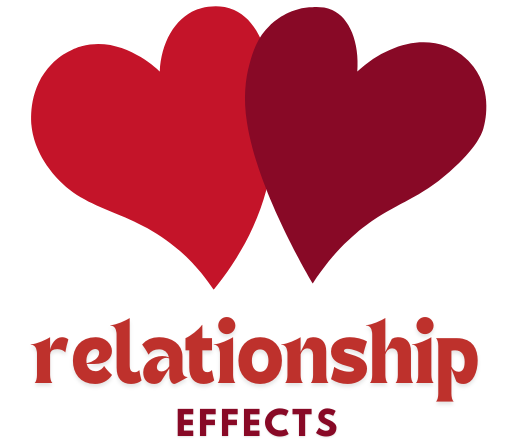Sibling relationships are among the most enduring connections we have in life. From shared childhood experiences to family traditions, siblings are supposed to be our lifelong companions. Yet, for many, sibling relationships are a source of frustration, conflict, and heartache. If you find yourself not getting along with your siblings, you might wonder if things will ever change. Understanding the dynamics and complexities of sibling relationships can provide insights and hope for a more harmonious future.

The Roots of Sibling Conflict
Sibling conflict often starts in childhood and can stem from various sources:
Parental Comparison: Parents, often unintentionally, compare siblings, praising one for their achievements while highlighting the other’s shortcomings. This can foster resentment and competition. Growing up, you might have heard, “Why can’t you be more like your brother? He always gets good grades,” leading to feelings of inadequacy and rivalry.
Jealousy and Competition: Siblings may compete for parental attention, approval, or resources. This competition can persist into adulthood, affecting career choices, lifestyle, and relationships. If your parents favored your sibling’s talents or interests, you might have felt overshadowed, leading to ongoing jealousy and competition.
Different Personalities: Siblings often have distinct personalities, leading to clashes. One might be extroverted and outgoing, while the other is introverted and reserved, causing misunderstandings and conflicts. These differences can make it challenging to find common ground and understand each other’s perspectives.
Unresolved Childhood Issues: Old wounds from childhood, such as favoritism, unfair treatment, or bullying, can linger into adulthood. These unresolved issues can create a barrier to forming a positive relationship with your siblings.
Life Changes: Significant life events, such as marriages, births, or the death of a parent, can exacerbate sibling tensions. Differences in how each sibling copes with these changes can lead to further conflict.
The Path to Change
While sibling conflict can be deeply ingrained, it is possible for these relationships to improve. Here are some steps to consider if you want to foster a better relationship with your siblings:
**1. Communication: Open and honest communication is essential. Express your feelings calmly and listen to your siblings’ perspectives. Avoid blame and focus on how certain actions or words make you feel.
Example: Instead of saying, “You never listen to me,” try, “I feel hurt when I feel like my opinions are ignored.”
**2. Understanding and Empathy: Try to understand your siblings’ experiences and perspectives. Empathy can help bridge the gap between conflicting personalities and past grievances.
Example: If your sibling was always praised for their achievements, consider how they might have felt immense pressure to live up to those expectations.
**3. Setting Boundaries: Establishing healthy boundaries can prevent conflicts from escalating. Clearly define what behaviors are unacceptable and communicate these boundaries respectfully.
Example: If your sibling’s criticism upsets you, tell them, “I appreciate your input, but I need you to express it in a more constructive way.”
**4. Forgiveness: Letting go of past hurts is crucial for moving forward. Forgiveness doesn’t mean forgetting or excusing harmful behavior, but it allows you to release the emotional burden.
Example: Acknowledge the hurt caused by past comparisons or unfair treatment, but choose to focus on building a better relationship in the present.
**5. Quality Time: Spending positive, quality time together can help mend relationships. Engage in activities you both enjoy and create new, positive memories.
Example: Plan a weekend getaway, participate in a shared hobby, or simply have regular family dinners to reconnect.
**6. Professional Help: Sometimes, the issues are too deep to resolve on your own. Seeking the help of a therapist or counselor can provide a neutral space to address conflicts and develop healthier communication patterns.
Example: Family therapy can help uncover underlying issues and teach effective ways to communicate and resolve conflicts.
Real-Life Stories of Change
Many people have successfully transformed their relationships with their siblings. For instance, Sarah and her brother Tom were constantly at odds during their teenage years. Parental comparisons and different interests created a rift that persisted into their twenties. However, after their mother fell ill, they found themselves having to work together to care for her. This shared responsibility forced them to communicate more openly and understand each other’s perspectives. Over time, their relationship improved significantly. They realized that their differences didn’t have to divide them; instead, they could complement each other.
Similarly, David and his sister Emily struggled with jealousy and competition. David always felt overshadowed by Emily’s academic achievements, while Emily resented David’s easygoing nature and popularity. In their thirties, they attended a family therapy session where they learned to express their feelings constructively and understand each other’s struggles. This experience was a turning point, and they gradually built a supportive and understanding relationship.
Is Change Possible?
Change is possible, but it requires effort, patience, and a willingness to look beyond past grievances. Open communication, empathy, and the establishment of healthy boundaries are crucial steps in improving sibling relationships. Whether through direct conversation, quality time together, or professional help, there are numerous ways to foster a healthier, more harmonious relationship with your siblings. Remember, every relationship is unique, and progress might be slow, but with commitment and understanding, you can transform a strained sibling relationship into a supportive and loving one.
Ally is editor at Relationship Effects and a keen writer on the topics of love and relationships. When she's not writing about the highs and lows of being in love, you're likely to find her catching up on the latest season of Bridgerton (again), reading, or hanging with her two ragdoll cats.
